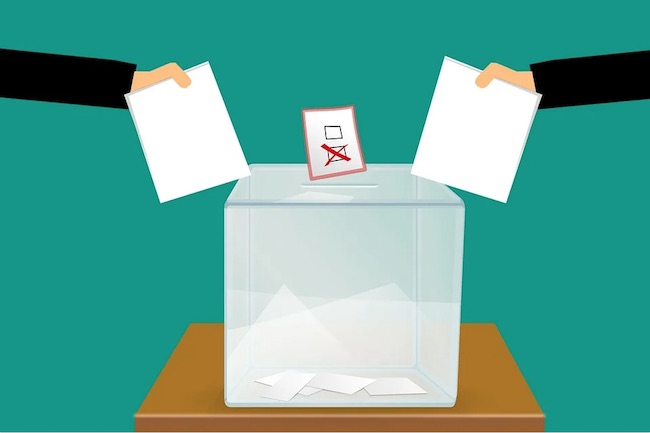A National Popular Vote Won’t Fix The Electoral College, But Smaller Government Will By Sukhayl Niyazov for The Federalist
The Electoral College remains an integral key to preserving the decentralization and federalism that underlie the U.S. Constitution.
The most popular argument against the Electoral College is that it violates the fundamental principle underlying democratic society: political equality, or, commonly phrased as “one person, one vote.”
Indeed, because all states are assigned at least three electors regardless of their population size, the Electoral College gives small states a disproportionate number of electors per capita. As a result, a person who receives the largest number of votes does not necessarily win the election, as was the case in the presidential contests of 1876, 1888, 2000, and 2016.
In the wake of the 2020 election, there have been renewed calls to abolish the Electoral College and replace it with a national popular vote. The Washington Post editorial board, for example, writes, “The Electoral College, whatever virtues it may have had for the Founding Fathers, is no longer tenable for American democracy.”
The logic underlying this argument is the following: the actions of the president, and the federal government, directly affect millions of people, and thus citizens, not states, should choose the president.
Why does a voter in Wyoming have four times as much say over who is to lead the country in the next four years than the resident of California, if all men are created equal? Furthermore, critics usually argue the Electoral College leads candidates to focus their efforts on a few swing states — like Florida, Michigan, Pennsylvania, and Wisconsin — while neglecting other regions of the country.
Yet, while it is true that in the current system presidential candidates don’t spend their energy and focus on all states equally, in a system with the popular vote, the “tyranny of the minority” would be even worse. Indeed, could well be enough to win the popular vote of highly dense, urbanized cities in states like California and New York while losing in elections in a vast majority of the country.
But as Dan McLaughlin writes in National Review, “The Electoral College, however, dilutes the influence of “hyperpartisan enclaves that are out of step with the nation,” be it California today or the American South in the 19th century. Thus, thanks to the Electoral College, candidates have to appeal to a geographically broader base that’s more politically, socially, and economically diverse.
Federalism and the Electoral College
The Electoral College is therefore a mainstay of America’s federalist system of governance, centered on the protection of certain rights reserved to the states as entities and resting on the principle of a division of power. America is a union of states, and the president is, in essence, the officer of the states rather than of the American people.




